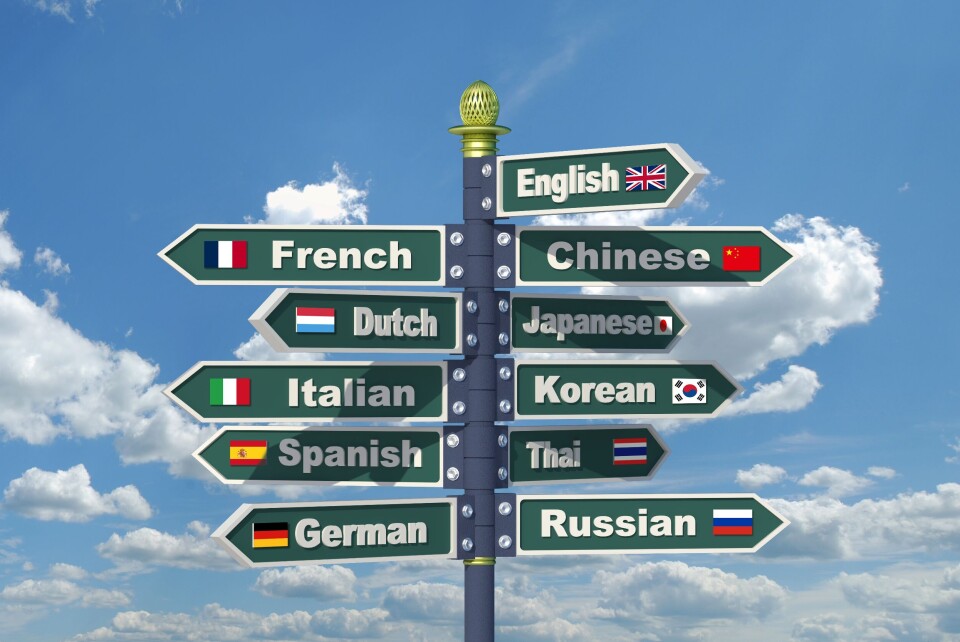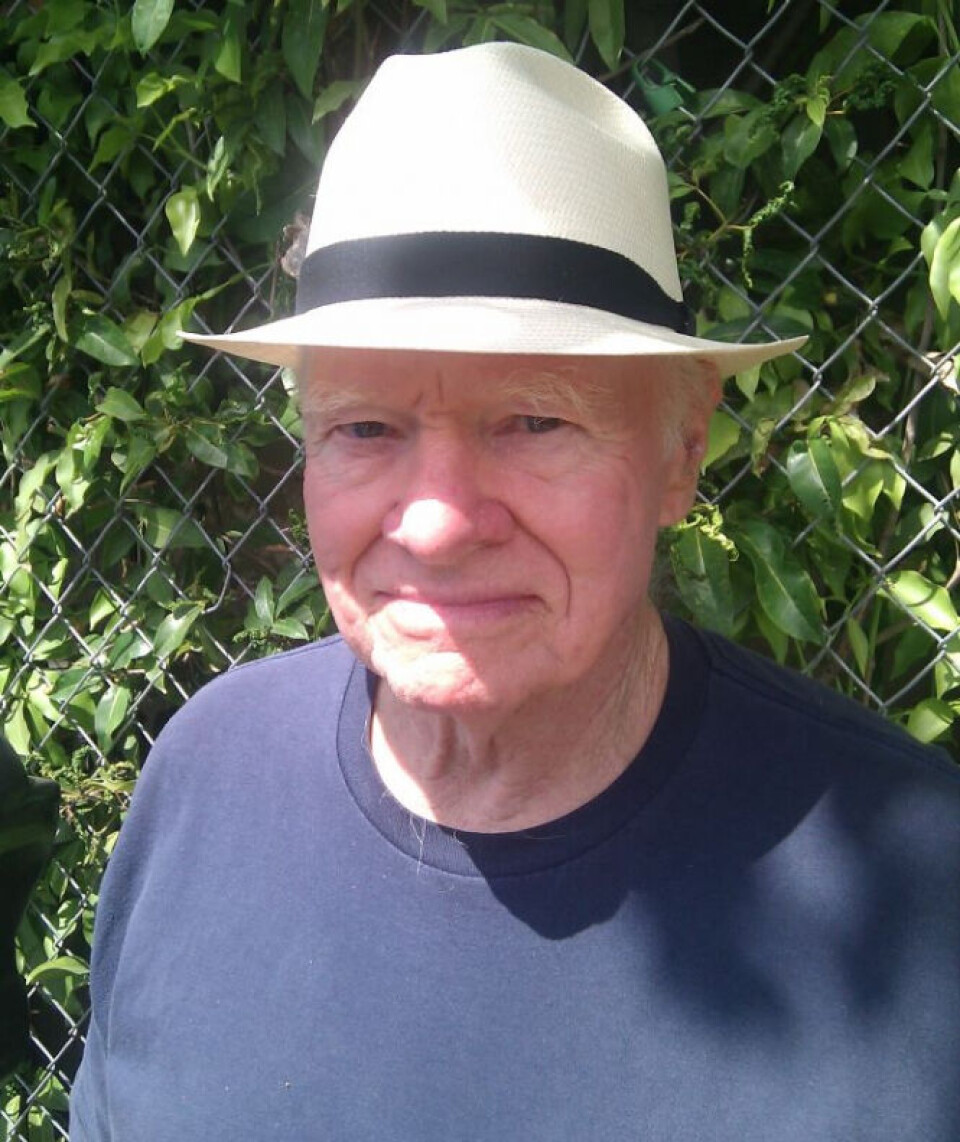-
Why I love where I live... in Nantes
Reader Sue Alouche, 66, and her French husband set up 'Knowing Nantes', a network for the anglophone community in the city
-
From civil servant to vacataire, clinical psychologist and super mum
Reader Flavia Campos, 44, explains how a move to Lille brought the variety she craved
-
France must do more to protect citizens detained in Iran, says former hostage
French-Irish citizen Bernard Phelan tells Théophile Larcher how 221 days in an Iranian prison have changed him irrevocably
Hebrew, Spanish, Esperanto: readers speak more than English and French
We asked what languages you know and how you learned them following the story of the American who can speak 24

Carpet cleaner Vaughn Smith from Maryland recently took the American press by storm when it was discovered that he could speak 24 languages and knew at least a few words in 17 more.
With his Finnish, Estonian, Hungarian, American Sign Language, Spanish, Portuguese, Welsh, Croatian, Japanese, Irish Gaelic, Nahuatl, Hebrew and so on, Mr Smith is a hyperpolyglot, defined as being someone who can speak at least 11 languages.
We asked Connexion readers how many languages they speak, and how they came to learn them. Here are four of the replies.
American reader Jack Peverill, a retired clinical psychologist, told us: “I speak French, Spanish and English as well as a little German plus Esperanto.
“I just learn them naturally but lived where they were spoken, which is important. I learned Esperanto on my own while in high school but rarely use it now. It’s sort of a curiosity.
“I also learned French at school and have a house in Annecy and spend summers there so I speak French with friends and neighbours.
“I lived in Paris in the 1950s thanks to Uncle Sam (US Army intelligence).
“I also have lived in other parts of Europe and Puerto Rico – I learned Spanish in high school as well. I pick up languages easily.”

Another reader, Miles Halford said: “I don't think it is unusual to speak several languages. A Hungarian friend told me that when he was little he expected when he grew up that he would be allowed to smoke and drink wine and would speak at least four languages.
“English is my native tongue, but I learned French from the age of six, and Latin and Ancient Greek from the age of seven.
“I was encouraged to learn Italian by an uncle who was keen on the Risorgimento [the unification of Italy into a single state] and I worked for several years for an Italian financial institution.
“I speak Hebrew both for religious reasons and to be able to communicate in Israel.
“I have chosen to learn a fair amount of German in order to communicate with German friends and a small amount of Spanish, Dutch and Chinese national language, as well as some Japanese. Several of my friends speak at least four languages.”
‘So much insight into a people and a culture’
A South African reader said: “I speak Afrikaans, my mother tongue. I love English, which I speak equally well.
“I speak French because I find it a beautiful language and I need to communicate when I am in deep rural France where I have a second home.
“I attempted learning Xhosa which is one of South Africa’s eleven official languages,” and which you can listen to in Miriam Makeba’s ‘Click Song’ (Qongqothwane).
“I am trying to pick up some Bahasa (Indonesian) as we visit Bali often. One has so much insight into a people and a culture through their language!”
Another British reader, Maggi Brown, commented: “I speak several languages and have done for many years.
“[I am] British born and learnt French at school. At college I did German and Russian. German took, Russian didn't.
“Then I travelled to Sweden for 12 months, where I learnt Swedish. Then later I went to the Canary Islands for 12 months where I learnt Spanish.
“About five years ago I decided to improve my rudimentary Italian via a U3A group, so now my Italian is pretty good too.
“In all fairness I learn languages easily. It took me only a couple of months to pick up both Swedish and Spanish when living in the countries and working with the locals.
"I am a great believer in speaking another language. It opens doors that would otherwise stay shut. We Brits are too scared to put our toes in the water. We are terrified of making fools of ourselves. We expect to be laughed at but in fact, if you actually 'have a go', you get more respect and help than scorn."
‘The key is making lessons fun and full of laughter’
Finally, another native English speaker reader, John Holloway, told us that he also speaks Spanish and French as well as a few words of German, Japanese and Dutch.
“At school from age 11 in the mid-1960s, I was lucky enough to have a very good French teacher who used a tape/slide course called ‘Le français d'aujourd'hui’,” he said.
“This featured La Famille Bertillon, who lived at a house in Rue Pommier in Villeneuve, and comprised Jean (adouanier – customs officer – at Orly), his wife Annette, le grand garçon Philippe (13), le petit garçon Alain (9), and their sister Marie-Claude (12).
“Each week there was a new story, covering things such as Christmas, poisson d'avril (April Fools’), going to the cinema to watch cops and robbers and much more.
“As the magnetophone recordings were of native speakers, we heard French being spoken by real native speakers, so consequently French people tell me that my French is really good with only a faint English accent.
“I have been mistaken for a native speaker two or three times by other native speakers who have asked which part of France I come from because they cannot place my accent!
“Some of the stories in the course had stereotypes which would be quite cringe-worthy today, such as the one where Marie-Claude stands on her bedroom table screaming, ‘Aie! Une souris! Au secours!’ (Argh! A mouse! Help!).
“However, what matters is that the course worked really well, and I absorbed it like a sponge. These days I actually struggle a bit with English.
“I learned Spanish in my thirties when I went to university as a mature student because I figured that after English and French, it was the next most useful language.
“Salvador, my Spanish teacher, a native of Valencia who spoke eleven languages fluently, was recognised as a world leader in language teaching.
“He taught A-level Spanish from scratch in just 25 weeks of three hours a week. This would have taken around six or seven years at school, which is pretty astonishing. He also delivered Spanish O-level as a three week course of evening classes – something which would take four years at school.
“He taught approximately 120 A-level students each year, and incredibly, in the 20 years that I knew him, every single student (around 2,500 of them) achieved a grade A in the exam, without a single exception.
“Having learned Spanish in my first year, I went on to complete a doctorate in English and Spanish Literature of the Golden Age. I speak Spanish without a foreign accent, although a little too slowly and clearly to be mistaken for a native speaker, so I am generally taken to be Dutch, which I consider a very high compliment indeed.
“Bizarrely, I am rarely aware of which language I am speaking, and often an encounter with a Spaniard - or seeing Sol et Mar products in Lidl during their Spanish week can cause me to flip over into Spanish, causing me to speak to my (French) wife or the checkout operator in Spanish.
“An interesting by-product of learning Spanish with Salvador is that I also learned how to teach a language most effectively.
“The key was to make the lessons fun and full of laughter rather than using cold slog and discipline so that students actually wanted to succeed rather than let me down in their exams.
“I consequently developed a reputation for outstanding results teaching technical, aeronautical, naval, and military English as a foreign language, not through any genius of my own, but through simply standing on the shoulders of a world-renowned giant.”
Thank you to all the readers who shared their experiences with us. If you have a language-learning story to tell, please email news@connexionfrance.com
Related articles
What’s your favourite book? New French study asks for nominations
What is the first ‘swear’ word every French person learns?
Pétante, pile: French phrases to help you set punctual timekeeping
























